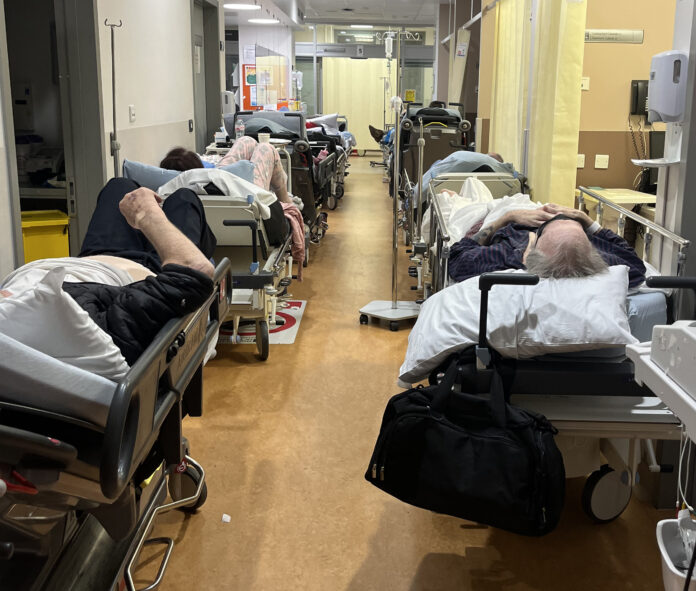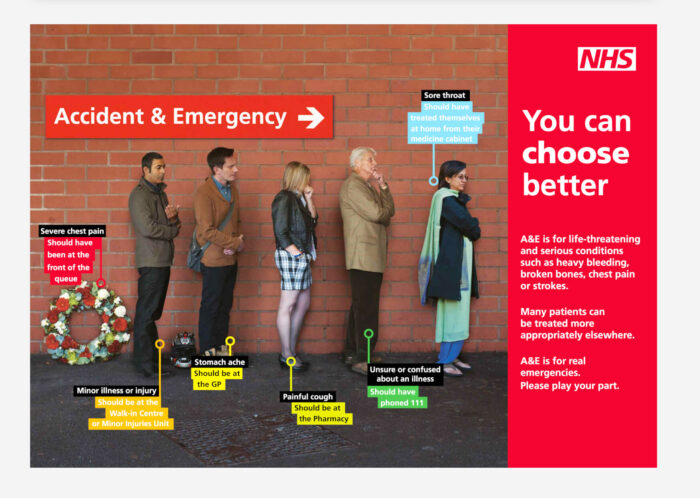
UNIVERSITY Hospital Limerick (UHL) has too few doctors, too few nurses, and too few beds.
But, according to hospital staff, it also has too many people coming to its emergency department who do not need to be there.
“There are people dying in that hospital that don’t need to die, purely because of overcrowding. People are going to the emergency department when they don’t need to. People who are fit and well are coming in,” one nurse told the Limerick Post.
Many factors have led to the overcrowding crisis at UHL, including management failings, but the decision in 2009 to close 24-hour emergency departments in Ennis and Nenagh was‚ in the view of some staff members, a massive mistake.
“It was the beginning of the end because the amount of additional beds needed then were not put in place at that time,” one nurse said.
“They had nothing in place to deal with the increase in patient numbers, and they went ahead with it. They let the horse out and then decided ‘we’ll build the stable now’.”
“You have patients coming to us from north Cork, parts of Kerry, north Tipperary, Clare and Limerick – that’s five counties. The hospital is not fit for purpose and it is not able to manage the surge in capacity”.
UHL ward staff also implicate the hospital organisation in the current crisis.
“We also need senior clinical decision makers – some are excellent – on the floor of the emergency department more often. That is a key factor in all of this,” they suggest.
“More beds are needed, but they are not the only solution. They must be staffed, and patient flow must improve, say staff, who speak privately because they fear being disciplined by the Health Service Executive (HSE) if they speak publicly.
“There is no point in putting in another 200 beds if the same practices are going to prevail. The beds will be filled very quickly but you’ve got to be moving people in and out of the system. Senior people have to see patients. It certainly is an issue.”
In a horrendous start to 2023, hospital management were forced to trigger an emergency when 170 people sought treatment in the emergency department, resulting in ambulances being forced to divert to other hospitals.
The most critically ill patients, especially those at immediate and serious risk of dying, were given priority, but pressures are mounting.
“Nurses are overwhelmed, just overwhelmed, it’s not their fault but patients are falling through the cracks,” said one nurse at the hospital.
“Patients are being triaged correctly but they are being sent to areas in the emergency department where there are 50 to 60 patients and three or four staff. You have a lot of admitted patients on trolleys.
“There is no space for nurses to work. There are patients all around you. There are people dying in that hospital that don’t need to die, purely because of overcrowding.
“The staff are just overwhelmed,” said the nurse, who spoke on condition of anonymity.
“You can’t blame the nurses. Burnout is the big thing, especially those with experience”
Retaining staff is also becoming more difficult.
“It was chaos in the emergency department over Christmas. They are not keeping staff. They do nothing to try to keep experienced staff in there, and a lot of nurses with vast experience have left.”
“The hospital is not 100 per cent to blame for it, because a lot of new nurses qualifying want to travel, so they either go straight to Australia or Saudi Arabia to get experience. You can’t blame them for doing it while they are young.
“Burnout is the big thing, especially those with experience. There are nurses in there who are good nurses but just not as experienced as the ones that have moved on, and you can imagine the knock-on effect that has had.”
“Limerick is the busiest emergency department in the country but the catchment area is massive and the hospital is not fit for purpose.
I remember an NHS billboard campaign in England showing people in a queue at a hospital,” a hospital nurse said.
“The caption over the first person was ‘should have gone to a pharmacy’, the next one read ‘should have gone to my GP’, the next one read, ‘should have gone to the local injury unit’, and the caption over a wreath at the end of the queue read, ‘should have gone to the emergency department’,” she explained.



